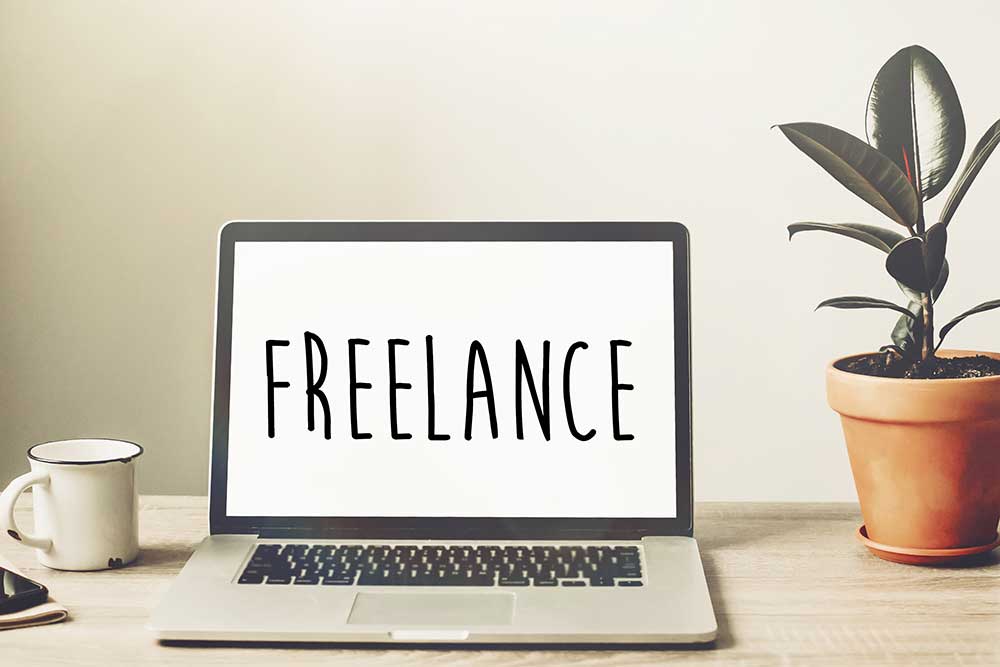
How to write a career change CV
Changing careers in mid-life is becoming increasingly common. A recent survey by...read more
Many UK workers have become increasingly worried about their incomes as the coronavirus pandemic has worsened, but whereas the employed have been promised additional support, by both the government and their employers, the self employed at present have to find out their options alone. We take a look at self employment rights during the COVID-19 crisis.

Many of the 5 million self employed people in the UK will have already seen their work impacted by Coronavirus. Freelance events staff have lost work due to event cancellations, beauticians have had to close shop to adhere to social distancing and lockdown measures, contracts with travel companies have been cancelled due to the grounding of flights. Self employed people are being impacted in all sorts of ways.
There is also the uncertainty over what happens if you are self-employed and have to go into self-isolation or become sick and can’t work as a result. Employed people have been advised that they will be eligible for statutory sick pay from day one of their illness – but self employed people are not eligible. So what are the options?
Some self-employed jobs have special rights, so it is definitely worth checking out your status in this respect. If you work for a business that has told you you are working on a self-employed basis, double check your contract or speak to your line manager to understand whether you may be eligible for statutory sick pay or any other similar support.
Various freelance organisations, as well as opposition ministers, are lobbying the government for more support for freelancers and the self employed in surviving the crisis so check the news daily for any further updates from the government on your rights here.
One positive development for contractors coming from the Covid-19 crisis is that the ‘off payroll rules’ called IR-35 will no longer be introduced in April 2020. This new legislation was going to make it more difficult for companies to hire freelancers, interims and contractors, requiring them instead to appoint people as regular employees. There were fears that this move would impact both companies and the self employed, so the reprieve is seen by many as positive news. You can read more about the IR35 news in this article.
If you own an income protection insurance policy, which is designed to pay out if can’t work due to being sick or injured and can’t work. If you have one of these policies, now is the time to claim.
If you don’t have this insurance, then there are still other options you should explore. The self employed don’t receive statutory sick pay, but if you find yourself unwell or forced to self isolate, you may be eligible to claim Employment and Support Allowance (ESA) which now available from day one of sickness instead of day eight. You usually need 2-3 years of National Insurance credits to receive ESA.
Another option is Universal Credit.The Government is suspending the minimum income floor for everyone affected by the economic impacts of coronavirus. That means every self-employed person can now access, in full, Universal Credit at a rate equivalent to Statutory Sick Pay for employees. Click here to find out more about Universal Credit.
Whether you are able to claim benefits or not, it’s well worth seeking out ways to reduce your spending while your income might be affected. Most banks and building societies have agreed to mortgage payment holidays, which will alleviate the pressure for many of us. Visit your mortgage lenders website to find out more about how you can apply.
You can also speak to your energy provider or any other business that you make regular payments to and enquire about any options available to reduce regular direct debits, or suspend bills.
The Government has also announced that the next self-assessment payments will be deferred until January 2021 and that it is deferring the next quarter of VAT payments.
This is a complex area and things are changing every day. For more information on coronavirus and work, read ‘Coronavirus – what working parents need to know.’
For more advice on Government support if you are self employed click here.